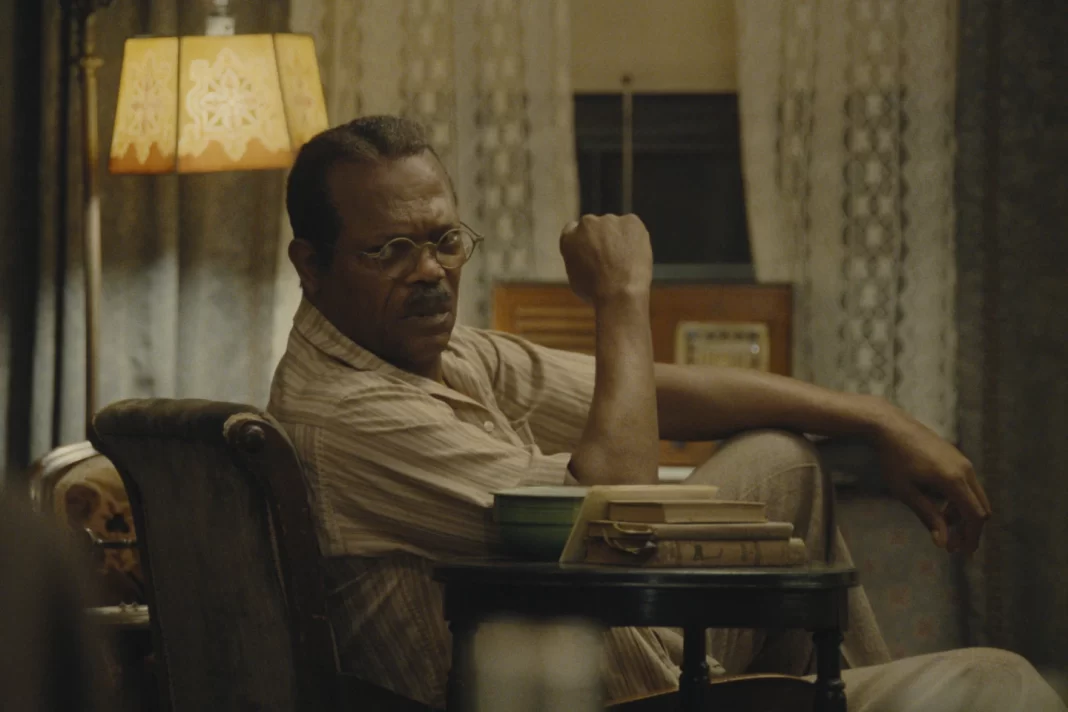By Lindsey Bahr
An heirloom piano takes on immense significance for one family in 1936 Pittsburgh in August Wilson’s “The Piano Lesson.” Generational ties also permeate the film adaptation, in which Malcolm Washington follows in his father Denzel Washington’s footsteps in helping to bring the entirety of The Pittsburgh Cycle — a series of 10 plays — to the screen.
Malcolm Washington did not start from scratch in his accomplished feature filmmaking debut. He enlisted much of the cast from the recent Broadway revival with Samuel L. Jackson (Doaker Charles), his brother, John David Washington (Boy Willie), Ray Fisher (Lymon) and Michael Potts (Whining Boy). Berniece, played by Danielle Brooks in the play, is now beautifully portrayed by Danielle Deadwyler. With such rich material and a cast for whom it’s second nature, it would be hard, one imagines, to go wrong. Jackson’s own history with the play goes back to its original run in 1987 when he was Boy Willie.
It’s not the simplest thing to make a play feel cinematic, but Malcolm Washington was up to the task. His film opens up the world of the Charles family beyond the living room. In fact, this adaptation, which Washington co-wrote with “Mudbound” screenwriter Virgil Williams, goes beyond Wilson’s text and shows us the past and the origins of the intricately engraved piano that’s central to all the fuss. It even opens on a big, action-filled set piece in 1911, during which the piano is stolen from a white family’s home. Another fleshes out Doaker’s monologue in which he explains to the uninitiated, Fisher’s Lymon, and the audience, the tortured history of the thing. While it might have been nice to keep the camera on Jackson, such a great, grounding presence throughout, the good news is that he really makes narration shine as well.
Wilson purists will certainly have opinions on these artistic choices; But they let the film breathe a bit, offering some respite from the living room with the looming piano. And most of the film stays right there, in 1936. Boy Willie and Lymon descend early one morning, uninvited, on the Pittsburgh home of Berniece and her uncle Doaker. It’s a family reunion with an agenda: They’ve driven a truck full of watermelons up north from Mississippi, and Willie, Berniece’s younger brother, wants to sell the watermelons and then the piano. The dusty old instrument represents to him a chance to let the past go and start a future. With the money, he wants to buy the land that his enslaved ancestors worked. Berniece has other ideas about the piano, namely keeping it. It’s a connection to the past, not an anchor. Besides, it might be haunted.
Yes, “The Piano Lesson,” in theaters Friday and streaming on Netflix on Nov. 22, isn’t just a meditation on family history. It’s also a literal ghost story, with creaks, spooks and shadows lurking when the piano is disturbed. Deadwyler is electric as Berniece, who bears the brunt of the haunting, walking on eggshells in her life, trying to care for her young daughter and fend off passes from men who assume she can only be fulfilled with one at her side. Now she must deal with her somewhat manic brother who might, Doaker wisely reminds, actually, annoyingly, have a point. Perhaps the film academy will make up for their snub of her performance in “Till” with this turn.
Regardless of your familiarity with Wilson’s Pittsburgh Cycle, “The Piano Lesson” is a worthwhile, captivating and moving watch full of charismatic performers. Talent isn’t always genetic, but the Washington family is putting in the work to prove otherwise. And with “Fences,” “Ma Rainey’s Black Bottom” and now “The Piano Lesson,” they’re making a mark with a bold and ambitious project that is probably long overdue. Only seven more to go.
“The Piano Lesson,” a Netflix release in theaters Friday and streaming Nov. 22, is rated PG-13 by the Motion Picture Association for “strong language, violent content, some suggestive references and smoking.” Running time: 125 minutes. Three stars out of four.
AP

